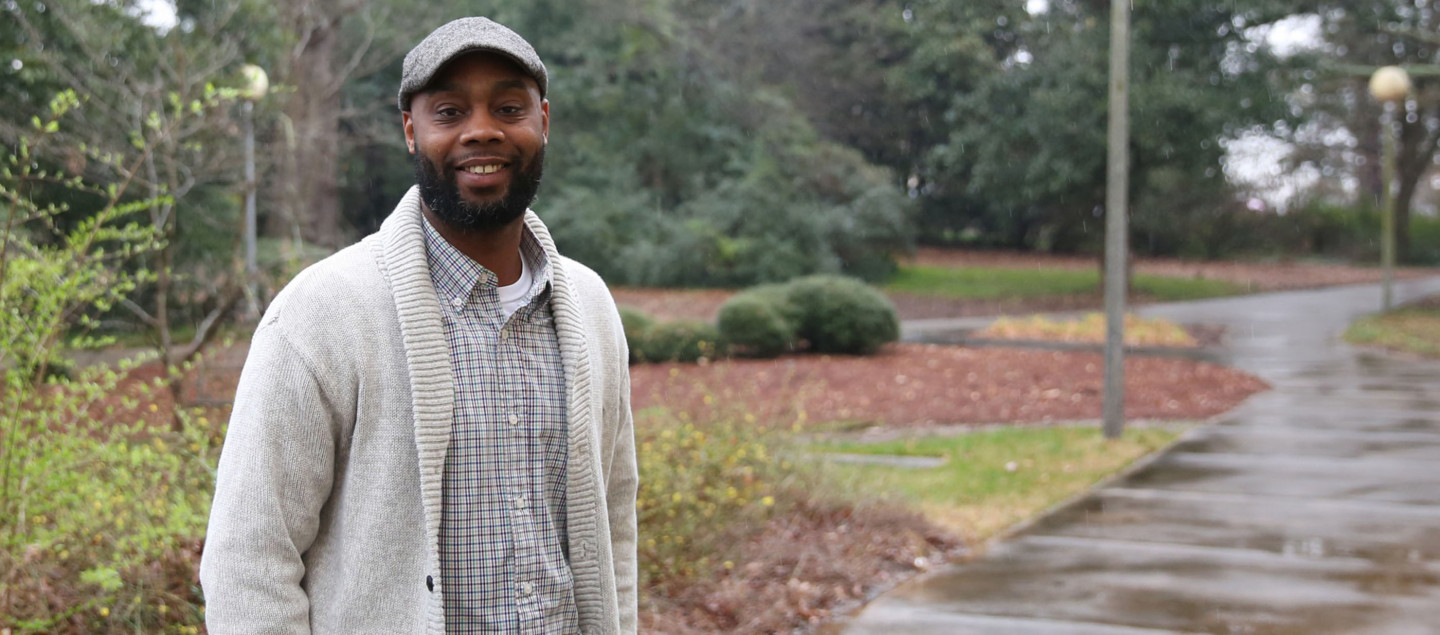New GICH director focused on partnerships and outreach

The shortage of affordable and healthy housing is nothing new for communities across the South, but trends in gentrification and infill building, the redevelopment of urban spaces as new construction, have exacerbated these shortages in many cities and towns in Georgia.
Jermaine Durham, the new housing and community development specialist with University of Georgia Cooperative Extension and assistant professor of housing and community development in the UGA College of Family and Consumer Sciences, grew up in Georgia watching these trends impact his hometown of Hartwell and his adopted hometown of Savannah.
He’s spent his career working with families to build stronger, more stable communities around the state. He joined UGA Extension and FACS this spring to study the housing problems Georgians face and to help find answers.
Durham plans to focus on developing partnerships with housing groups around Georgia and working with county Extension agents to increase the amount of housing programming they offer in their communities. He also serves as director for the Georgia Initiative for Community Housing, which partners with the Georgia Department of Community Affairs, Georgia Power and the Georgia Municipal Association.
“Extension agents on the ground have to be pretty flexible,” Durham said. “They may be focused on nutrition but find out, ‘Hey we have this huge housing problem.’ I want to help them be ready to tackle a wide range of issues pertaining to housing.”
Durham says UGA Extension plays a prominent role in outreach and working with communities on local issues. As UGA’s sole community development Extension specialist, he feels responsible for helping spread awareness through his knowledge on the issues that many Georgians face.
“In urbanized areas, we see that affordability is the preeminent issue where there’s not enough housing for the lower income groups, and this oftentimes has a racial component to it as well,” Durham said. “In some of the more rural areas, we see a combination of housing affordability issues and a growing epidemic of blighted homes.”
Housing affordability in rural areas is tied directly to the declining stock of houses, while in urban areas, more investment and development lead to gentrification and the outpricing of lower-income residents, Durham said.
Durham started his career in community development early as a youth program manager at Goodwill of the Coastal Empire, working on workforce development and mentoring. He also worked as a microbusiness coordinator at Savannah State University and with the Housing Authority of Savannah before returning to school at Clemson University, where he will receive his doctorate in planning, design and the built environment this spring. His research focuses on the foreclosure crisis in the South and race and economic inequality and their impact on neighborhoods and communities.
Durham is eager to put what he has learned to work in the Extension setting and expand on his research into Southern communities.
Next fall and spring he will begin teaching courses in subsidized housing and housing and community development at FACS.
“UGA has always been a force in the community, so it’s great to be a part of the UGA family in this capacity,” he said.
This article was written by Sage Barnard, a student writer for the UGA College of Agricultural and Environmental Sciences and UGA Cooperative Extension.
In this category: Homes
-
Revisiting the economic impact of low-income housing tax credits in Georgia
For every net $1 of state income tax lost to LIHTC, an additional $5.79 of economic activity was generated on average.

-
We Are FACS campaign showcases college’s diverse career paths
Launched in June, the campaign raises awareness about the college's offerings

-
Athens fifth grader wins radon education poster contest
UGA Radon Education Program poster contest helps raise awareness and promote testing

-
UGA, Fort Valley State Extension team up to provide free estate planning program
Workshops helped secure over 470 acres of land valued at more than $3 million

-
UGA Radon Education program promotes awareness, home testing
Program offers home test kits for $15
